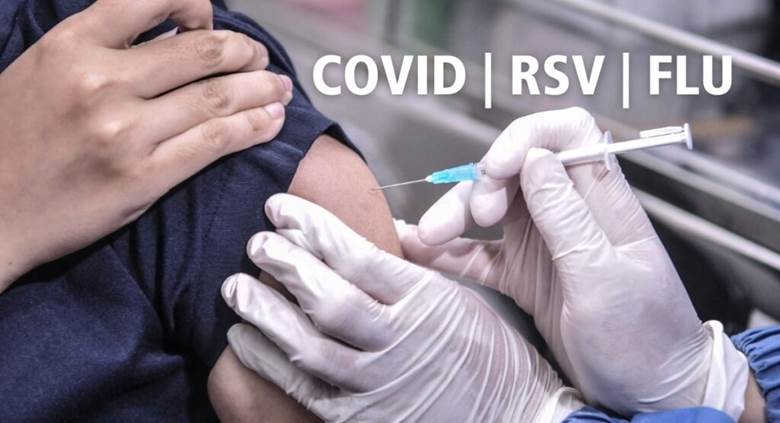

Are We Facing a Second Tripledemic?
The US is currently facing a national medical health crisis: a possible tripledemic of a simultaneous rise in Covid-19, flu, and Respiratory Syncytial Virus – RSV – cases. The surge of respiratory illnesses threatens to burden already-overburdened healthcare systems, with possible lapses in care for vulnerable communities.
The Centers for Disease Control and Prevention reported 29,000 Covid hospitalizations in the week ending December 23. The new JN.1 subvariant accounts for nearly half of new Covid infections. The US is also facing a surge in RSV cases, a respiratory illness without a cure, largely seen in infants and older adults. And, in just the last quarter of 2023, there have been as many as 14 million cases of flu with 13,000 deaths, according to CDC estimates.
Experts this week will discuss the predicted tripledemic, the origin of JN.1, symptoms of all three infections; causes; prevention and treatment; and why vaccines and masks remain necessary. – Ethnic Media Services
According to a CBS report, health officials are monitoring a triple threat of respiratory illnesses. Here's how to avoid getting sick:
As the new year gets underway, health officials are issuing a nationwide alert about a triple threat: The simultaneous spread of the flu, COVID-19, and respiratory syncytial virus, or RSV.
The Centers for Disease Control and Prevention is reporting a significant rise in emergency room visits due to flu and COVID-19 , while RSV infections continue to pose a serious risk — particularly to infants and the elderly.
Dr Celine Gounder, a CBS News medical contributor and KFF Health News editor-at-large for public health, said that the US is seeing a flu spike and a rise in COVID-19 hospitalizations.
"We've had 10,000 people across the US die from COVID since November, so this is definitely not gone," said Gounder.
With symptoms often overlapping, Gounder said it was important to test to differentiate between the viruses. She also advocated for vaccination and the use of masks, such as N95s, as effective prevention strategies.
"They will not necessarily prevent all infections, but they will prevent you from getting really sick. Especially if you're somebody who doesn't want to miss time at work or at school," said Gounder.
Comparing the current situation to previous years, Gounder said that this season is better than the last couple since the pandemic started.
"Even before the pandemic bad flu season could really crush the hospital. In terms of the number of patients coming in. And so now you have a whole new virus on top of what we were seeing before. And so, there's really not a lot of bandwidth to take on more patients if people get sick," said Gounder. – CBS

